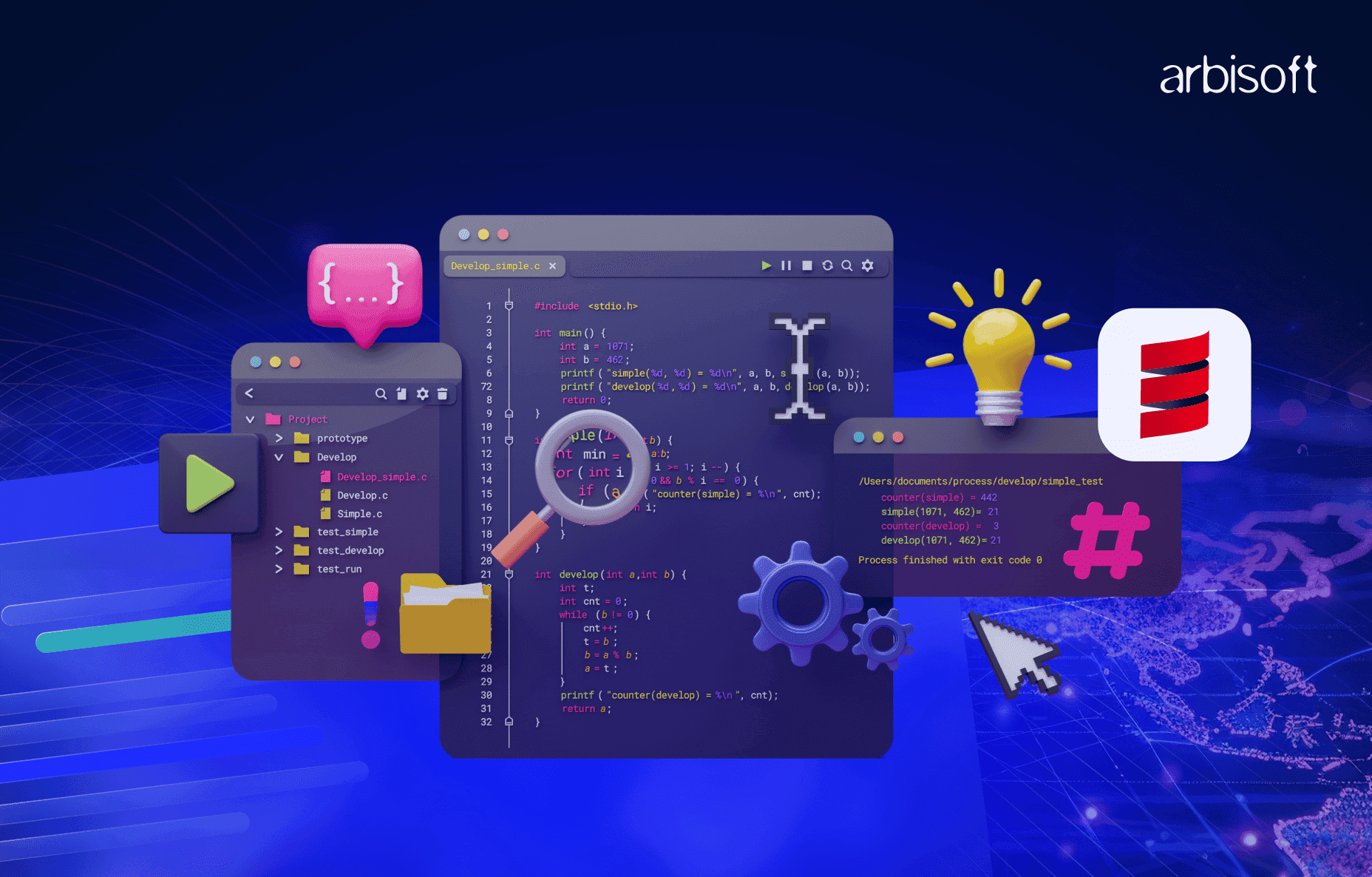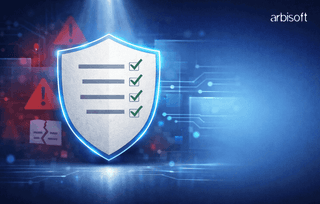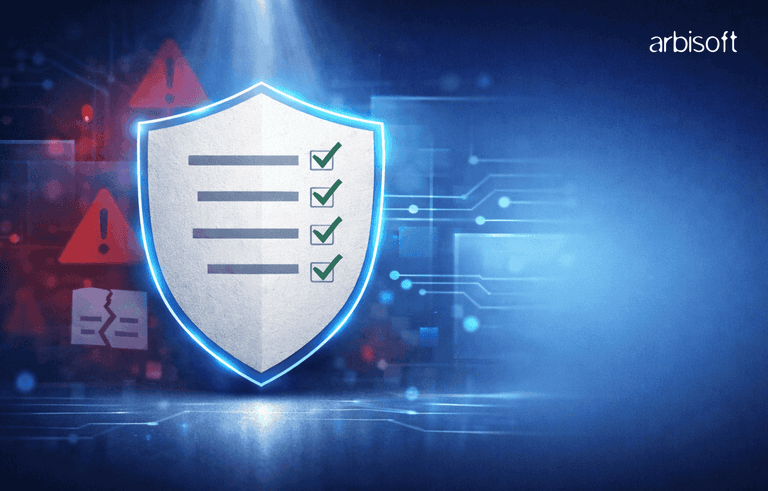We put excellence, value and quality above all - and it shows




A Technology Partnership That Goes Beyond Code

“Arbisoft has been my most trusted technology partner for now over 15 years. Arbisoft has very unique methods of recruiting and training, and the results demonstrate that. They have great teams, great positive attitudes and great communication.”
Why Scala's Functional Programming Will Change How You Code

Let's start with the real talk. I remember when I first heard about functional programming in Scala - it sounded like academic jargon that had no place in real software development. Boy, was I wrong! After spending years writing Python scripts and building Java applications, diving into Scala's functional approach completely changed how I think about solving problems with code.
If you're coming from Python or Java like I did, you're probably wondering whether this whole functional programming thing is worth your time. Spoiler alert: it absolutely is, and I'll show you exactly why throughout this guide.
So What Exactly Is Functional Programming?
Think of functional programming as a different way to organize your thoughts when writing code. Instead of telling the computer "do this, then do that, then change this variable," you're essentially building a series of mathematical transformations that take input and produce output.
Here's the thing that clicked for me: functional programming treats your code like a recipe where each step produces something new rather than modifying what you already have. When you make a smoothie, you don't destroy the fruits - you combine them into something new. That's exactly how functional programming works with data.
Scala makes this approach incredibly practical because you can mix it with the object-oriented patterns you already know. You don't have to throw away everything you've learned - you're just adding powerful new tools to your toolkit.
The Four Pillars That Actually Matter
Let me break down the core concepts in a way that made sense to me when I was learning:
- Immutability means you stop changing things after you create them. I know this sounds crazy if you're used to Python lists or Java arrays, but hear me out. When everything stays the same once it's created, you eliminate a huge class of bugs. No more wondering "who changed this variable and when?" because nobody can change it.
- Pure Functions are like reliable friends - give them the same input, and they'll always give you the same output without any drama or side effects. These functions don't modify global variables, don't print to console, and don't access databases. They just take input, do their calculation, and return a result. This makes testing incredibly straightforward.
- Higher-Order Functions sound fancy, but they're just functions that work with other functions. Think of them as the Swiss Army knife of programming - you can pass functions around like variables, store them in collections, and combine them in creative ways.
- Function Composition is where the magic happens. Instead of writing one massive function that does everything, you write small functions that do one thing well, then combine them like building blocks. Each function transforms the output of the previous one, creating elegant data processing pipelines.
Why I Fell in Love with Scala's Functional Approach
Your Code Becomes Rock Solid
Here's what happened when I started writing functional Scala code: bugs that used to haunt me for days just disappeared. When you can't accidentally modify data that other parts of your program depend on, a whole category of "wait, what just happened?" moments vanishes.
I used to spend hours debugging race conditions in my Java code. With immutable data structures, those problems simply can't exist. The compiler catches most issues before your code even runs, which means you spend less time debugging and more time building cool stuff.
Concurrency Stops Being Scary
Remember those nightmare debugging sessions with shared mutable state in Java? Yeah, those are mostly gone now. When your data can't change, you can safely pass it between threads without worrying about synchronization issues.
I recently built a real-time data processing system that would have been a nightmare in traditional Java with all the locks and synchronized blocks. In Scala, the functional approach made concurrent processing feel natural and safe.
Your Code Tells Better Stories
Functional programming forces you to write code that reads like a story. Instead of imperative commands like "loop through this list, check each item, modify that variable," you write transformative statements like "filter the valid items, transform them into the format we need, then collect the results."
This isn't just about looking pretty - it's about maintainability. When you come back to your code six months later (or when a teammate needs to understand it), the functional approach makes the intent crystal clear.
Real-World Applications That Actually Matter
Big Data That Doesn't Break Your Brain
You've probably heard of Apache Spark - it's built with Scala specifically because functional programming makes distributed computing intuitive. When you're processing terabytes of data across hundreds of machines, the functional approach of "transform this data through a series of operations" maps perfectly to the map-reduce paradigm.
I worked on a project analyzing customer behavior data where we processed millions of transactions daily. The functional approach let us build data pipelines that were both performant and easy to understand. Each transformation step was a pure function, making the entire pipeline testable and debuggable.
Stream processing becomes elegant when you think functionally. Instead of managing complex state machines, you describe data transformations that flow naturally from one step to the next.
Financial Systems Where Bugs Cost Money
In financial technology, correctness isn't optional - it's literally about money. Functional programming's emphasis on pure functions and immutable data provides the mathematical precision that financial calculations demand.
I've seen trading systems where a single bug in mutable state management cost millions. Functional programming eliminates entire classes of these issues by making calculations predictable and verifiable. Risk management systems particularly benefit from this approach because you can reason about complex financial models with confidence.
Web APIs That Scale Gracefully
Modern web development involves handling thousands of concurrent requests while transforming data between different formats. Scala's functional features, combined with frameworks like Akka HTTP and Play, make building scalable web services surprisingly straightforward.
Building REST APIs becomes a matter of composing functions that handle requests, transform data, and generate responses. Each function does one thing well, making your entire API easier to test and maintain.
Machine Learning Pipelines That Make Sense
Data science workflows are essentially complex data transformation pipelines. Functional programming provides natural abstractions for ETL operations, feature engineering, and model training.
When you're building machine learning systems, you need confidence that your data transformations are correct and reproducible. Functional programming's emphasis on pure functions makes your entire pipeline more reliable and easier to debug when something goes wrong.
Coming from Python? Here's Your Roadmap
What You'll Recognize Right Away
If you're a Python developer, you already know more functional programming than you realize. Those times you've used map(), filter(), and list comprehensions? That's functional programming in action. Scala takes these concepts and supercharges them with a powerful type system.
Python's REPL experience translates beautifully to Scala. You can experiment with code snippets, test functions interactively, and build up complex solutions piece by piece. The workflow feels familiar, even if the syntax looks different initially.
Your experience with Python's lambda functions gives you a head start on Scala's function literals. The concepts transfer directly - you're just learning new syntax for familiar ideas.
The Mind Shifts You'll Need to Make
The biggest adjustment isn't learning new concepts - it's embracing static typing. Coming from Python's dynamic nature, declaring types might feel restrictive at first. Here's the thing: Scala's type inference is so good that you often don't need to declare types explicitly, but when you do, the compiler becomes your best debugging companion.
Python's "everything is an object" philosophy meets Scala's "everything is a value" approach. This shift actually makes your code more predictable because you can reason about data transformations more clearly.
The compilation step adds a new phase to your development cycle, but trust me - catching errors at compile time beats hunting runtime bugs any day of the week.
Your Learning Journey (The Realistic Timeline)
- Week 1-2: Getting Comfortable with Syntax Start with the REPL. Practice basic operations, collections, and simple functions. Don't worry about advanced features yet - just get comfortable with how Scala feels.
- Week 3-4: Understanding the Type System Begin with simple types and gradually work your way up. The type system is your friend, not your enemy. Let it guide you toward better code design.
- Week 5-8: Collection Operations and Pattern Matching This is where things get exciting. Scala's collection operations are like Python's list comprehensions on steroids. Pattern matching will change how you think about conditional logic.
- Week 9-12: Case Classes and Function Composition Start building larger applications. Case classes provide excellent ways to model data immutably, while function composition lets you build complex operations from simple parts.
Most Python developers find themselves productive in Scala within 3-4 months, with functional programming patterns feeling natural around the 6-month mark.
Java Developers: You're Closer Than You Think
What You Already Know That Helps
Your JVM knowledge is pure gold here. All those years of understanding garbage collection, JIT compilation, and JVM tuning transfer directly to Scala. You can use your existing Java libraries, debugging tools, and performance monitoring techniques without missing a beat.
The object-oriented foundation you've built serves as a comfortable launching pad. Scala isn't asking you to forget everything about classes, interfaces, and inheritance - it's adding powerful functional tools to your existing toolkit.
IntelliJ IDEA (or whatever IDE you prefer) works beautifully with Scala. The debugging experience, profiling tools, and project management features remain familiar while you're learning the new language features.
The Exciting Differences That Matter
Scala's concise syntax eliminates so much of the boilerplate that drives Java developers crazy. No more writing getters and setters for every field, no more verbose anonymous inner classes for simple operations, and no more ceremonial type declarations everywhere.
The functional programming integration feels natural because Scala doesn't force you to choose between object-oriented and functional styles. You can gradually adopt functional patterns while keeping the object-oriented structures that make sense for your domain.
Type inference reduces the verbosity that Java developers often complain about, while still maintaining the compile-time safety that prevents runtime surprises.
Your Practical Learning Path
- Month 1: Leverage What You Know Start by converting existing Java classes to Scala. Focus on the syntax differences while using familiar object-oriented patterns. This builds confidence without overwhelming you with new concepts.
- Month 2: Embrace the Collections Framework Scala's collections are where you'll first experience the power of functional programming. Replace your Java loops with map, filter, and fold operations. This shift in thinking sets the foundation for everything else.
- Month 3: Pattern Matching and Case Classes These features will change how you approach conditional logic and data modeling. Pattern matching is like switch statements that actually make sense, while case classes eliminate tons of boilerplate for data containers.
- Month 4: Function Composition and Higher-Order Functions Now you're ready for the advanced functional patterns. Start building complex operations by composing simple functions. This is where the functional approach really shows its power.
Most Java developers report feeling confident with functional Scala programming after 2-3 months of consistent practice.
Setting Up Your Development Environment (The Non-Intimidating Way)
Do You Need More Than VS Code? (Short Answer: Nope!)
VS Code works perfectly for Scala development, and honestly, it's what I recommend for beginners. You don't need to learn a heavyweight IDE while also learning a new programming language. VS Code with the right extensions gives you everything you need: syntax highlighting, error detection, debugging, and intelligent code completion.
That said, you will need a few additional tools that work behind the scenes. Think of them as the engine that powers your development experience rather than tools you interact with directly.
The Essential Software Stack
- Java Development Kit (JDK 8 or higher) is your foundation since Scala runs on the JVM. I recommend OpenJDK 11 or 17 - they're free, stable, and have long-term support. Download from Adoptium.net if you don't have one already.
- Scala Build Tool (SBT) manages your project dependencies and handles compilation. Think of it like npm for Node.js or pip for Python, but more powerful. SBT downloads libraries, compiles your code, runs tests, and packages applications.
- Scala itself comes with the compiler and standard library. You can have multiple Scala versions installed simultaneously, which is helpful when working on different projects.
The VS Code Extensions That Actually Matter
- Metals is the star of the show - it provides comprehensive Scala language support. This single extension gives you syntax highlighting, error detection, code completion, go-to-definition, and debugging capabilities. It's developed by the Scala Center and works incredibly well.
- Scala Syntax (official) enhances code readability with better syntax highlighting. While Metals provides basic highlighting, this extension makes your Scala code much more visually appealing and easier to read.
- SBT for VS Code integrates build tool functionality directly into the editor. You can run SBT commands, view build output, and manage dependencies without switching to a terminal.
- Bracket Pair Colorizer 2 becomes invaluable when working with Scala's nested function compositions and pattern matching. This extension helps you visually match brackets and parentheses in complex functional code.
Nice-to-Have Extensions for Better Experience
- GitLens supercharges your Git integration, showing you who changed what and when. This becomes particularly valuable when working in teams or contributing to open-source Scala projects.
- Path Intellisense helps with import statements and file navigation. Scala projects can have deep package structures, and this extension reduces typing and prevents import errors.
- Thunder Client (or similar REST client) proves useful when building web APIs with Scala frameworks like Play or Akka HTTP.
Getting Everything Installed (Step by Step)
Step 1: Install Java (The Foundation)
On macOS, the easiest approach uses Homebrew:
brew install openjdk@11If you prefer downloading directly, head to Adoptium.net and grab the LTS version. After installation, verify everything works:
java -versionYou should see something like "OpenJDK 11.0.x" in the output.
Step 2: Get Scala and SBT Running
Again, Homebrew makes this simple:
brew install scala
brew install sbtAlternatively, use Coursier (the Scala installer) which many developers prefer:
curl -fL https://coursier.io/install.sh | bash
cs install scala:2.13.8 sbtVerify both installations:
scala -version
sbt --versionStep 3: Configure VS Code for Scala Development
- Open VS Code and install the Metals extension from the marketplace
- Install Scala Syntax (official) for better highlighting
- Add SBT for VS Code for build integration
- Consider Bracket Pair Colorizer 2 for better code navigation
Metals might prompt you to install additional components - go ahead and accept these installations.
Step 4: Create Your First Project
Create a new Scala project using SBT's template system:
sbt new scala/scala-seed.g8This creates a basic project structure. Navigate into the project directory and open it in VS Code:
cd your-project-name
code .Metals should automatically detect your Scala project and start providing language services.
Where to Go When You Need Help (Real Resources That Actually Work)
Start with the Official Stuff (But Don't Stop There)
- The Scala Language Documentation at scala-lang.org isn't just academic fluff - it's actually well-written and practical. The tour section walks you through language features with runnable examples, making it perfect for hands-on learning.
- The Scala Style Guide might seem pedantic, but following these conventions will make your code look professional and help you get meaningful code reviews when you start contributing to projects.
Online Learning That's Worth Your Time
- Coursera's Functional Programming in Scala Specialization by Martin Odersky (Scala's creator) is gold standard. Yes, it's academic, but Odersky explains concepts in ways that click. The assignments are challenging but rewarding.
- Scala Exercises (scala-exercises.org) provides bite-sized challenges that reinforce what you're learning. Each exercise focuses on specific functional programming concepts, building your skills incrementally.
- Rock the JVM courses go deep into practical applications. If you're planning to work with Akka, Spark, or advanced functional libraries like Cats, these courses provide real-world context that textbooks often miss.
Books That Changed How I Think About Code
- "Functional Programming in Scala" by Paul Chiusano and Rúnar Bjarnason (often called "The Red Book") is challenging but transformative. It builds a complete functional programming library from scratch, teaching you not just what to do but why functional programming works.
- "Programming in Scala" by Martin Odersky covers everything from basic syntax to advanced features. Since it's written by Scala's creator, you get insights into the design decisions behind language features.
- "Scala with Cats" by Noel Welsh and Dave Gurnell bridges the gap between functional programming theory and practical application. If the Red Book feels too academic, start here for a more pragmatic approach.
Communities Where You Can Actually Get Help
- Scala Users Forum (users.scala-lang.org) is where serious discussions happen. The community is incredibly knowledgeable and welcoming to newcomers asking thoughtful questions.
- Reddit's r/scala provides a more casual environment for sharing news, asking questions, and discovering new libraries. The community shares war stories and practical tips that you won't find in documentation.
- Discord Scala Community offers real-time help when you're stuck on something specific. The #beginners channel is particularly active and supportive.
Projects That Will Level Up Your Skills
- 99 Scala Problems provides a graduated series of challenges that build from basic operations to complex algorithms. These problems are perfect for interview preparation and skill building.
- Advent of Code solutions in Scala push you to think creatively about problem-solving. The community shares elegant functional solutions that often teach new patterns and techniques.
- Contributing to Open Source accelerates learning faster than any tutorial. Projects like Akka, Play Framework, and various Typelevel libraries welcome contributions and provide mentorship opportunities.
Advanced Topics for When You're Ready to Level Up
Functional Programming Libraries That Matter
- The Cats Library provides the tools for serious functional programming. Don't let the cute name fool you - this library implements category theory concepts like functors, monads, and applicatives in practical ways. Once you understand these patterns, you'll see elegant solutions to problems that seemed impossible before.
- Scalaz offers an alternative approach to functional programming abstractions. While it's less popular than Cats these days, understanding Scalaz helps you appreciate different design philosophies in functional programming.
Concurrency That Actually Makes Sense
- Akka Framework implements the Actor model, which changes how you think about concurrent programming entirely. Instead of shared mutable state and locks, you have isolated actors that communicate through messages. This approach scales from single machines to distributed systems.
- Parallel Collections demonstrate how functional programming enables automatic parallelization. When your operations are pure functions, the compiler can safely execute them in parallel without you writing a single line of concurrency code.
Type-Level Programming (The Deep End)
- Advanced Type System Features let you encode business rules and invariants directly in types. This means the compiler can prevent entire categories of bugs at compile time. It's complex but incredibly powerful for building robust systems.
- The Implicit System provides automatic value and type class resolution. Mastering implicits enables you to create APIs that feel magical to use while maintaining type safety.
Wrapping Up: Your Functional Programming Journey Starts Now
Learning functional programming in Scala isn't just about adding another language to your resume - it's about fundamentally changing how you approach problem-solving with code. The functional mindset of immutability, pure functions, and composition creates software that's more reliable, easier to test, and genuinely enjoyable to work with.
Whether you're coming from Python's dynamic flexibility or Java's object-oriented structure, Scala meets you where you are while opening doors to powerful new programming paradigms. The initial learning curve is real, but the payoff comes quickly as you start writing code that's both more concise and more robust.
The development environment setup is straightforward - VS Code with Metals gives you everything you need to start building functional applications immediately. You don't need to invest in expensive tools or learn complex IDEs before you can start experimenting with functional concepts.
Most importantly, the Scala community is genuinely helpful and welcoming to newcomers. The resources I've shared aren't just academic exercises - they're practical guides created by developers who've faced the same challenges you're encountering.
Start small, practice consistently, and don't try to master everything at once. Pick a simple project, apply one functional programming concept at a time, and watch how your code becomes more predictable and maintainable. Before you know it, you'll be thinking functionally by default and wondering how you ever managed without immutable data structures and function composition.
The future of software development increasingly embraces functional programming principles. By learning Scala now, you're not just picking up a new language - you're preparing for a programming paradigm that makes complex systems simpler and concurrent programming safer. That's a skill set that will serve you well regardless of where technology takes us next.
I hope this guide helps you on your functional programming journey. The Scala community is always evolving, so stay connected with the official documentation and community resources for the latest developments and best practices.
























